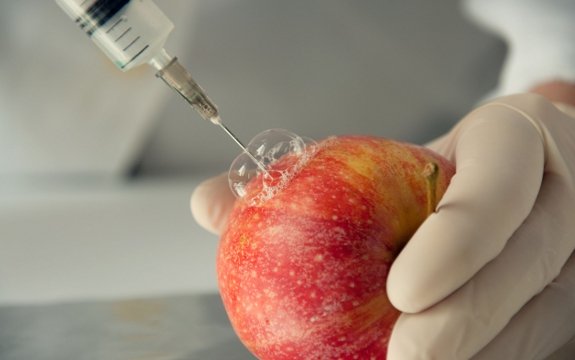China Food Conference Warns Against GMOs, New Zealand Takes Note of GMO Dangers

 At a recent conference in China, New Zealand officials took heed to warnings about the dangers of letting genetically modified crops take hold in their own country. The International Conference on Ethnic Food Cultures and Food Safety featured a broad range of topics, with much of the time spent on investigating and discussing the values and dangers of genetically modified crops.
At a recent conference in China, New Zealand officials took heed to warnings about the dangers of letting genetically modified crops take hold in their own country. The International Conference on Ethnic Food Cultures and Food Safety featured a broad range of topics, with much of the time spent on investigating and discussing the values and dangers of genetically modified crops.
It’s important that we keep watch of the global happenings surrounding genetically modified foods. While the U.S. is “leading” the way in using, commercializing, and supporting the corporations behind genetically modified crops, other countries seem to be taking a more cautious approach, an approach our leaders could certainly learn from. It seems nations are following Italy’s decision to ban at least some GMOs.
“China showed great leadership in opening up the debate on GE (genetically engineered) foods by inviting a group of leading scientists and doctors to present evidence about the cultural, environmental and serious health problems of GE food,” said Claire Bleakly of the organization GE-Free NZ.
At the conference, the U.S. was sort of held up as an example of what not to do. One presenter, Jack Heinemann, explained how diversity, yield, and sustainable farming practices in the U.S. have all taken a hit since the commercialization of soy, corn, cotton, sugar beets, and canola.
Advocates of having a genetically-modified-free New Zealand got many take-aways from the conference, including that their economy could be harmed if they implement GM-foods on a large scale. They recognize that the people of New Zealand and the world don’t want genetically modified foods and would make that clear with their spending dollars.
“The performance indicators overseas and worldwide consumer demand for GE-free food show that there would be a negative impact on the economic viability of any farmers growing GE food here,” said a GE-Free NZ spokesman Jon Carapiet. “This is stark warning for big players like Federated Farmers and Fonterra and the government that they must listen to customers and provide what the market is demanding. At the moment they are pushing in the wrong direction by following what vested interests in the biotechnology sector want to produce.”
Also addressed at the conference were the creation of pesticide-resistant superweeds and pests that are evolving with the increasing use of chemicals on crops. Sustainable agricultural practices seemed to be the order of the day at the conference, where GM crops were also criticized for their poor performance and their negative health effects. No word on whether there were any U.S. representatives present at the conference, though it seems like one that certain FDA officials should have attended.
Additional Sources:

Strange…yet, Sinochem Group, China's largest chemical, fertilizer, pesticides, seed producer, among many other products, has partnered with Monsanto. How does that figure?
"China National Seeds Group Corporation (CNSGC for short) owned by Sinochem is a national class seed company in China. With its overall strength taking the lead in China, it is devoted to becoming a company that integrates seed breeding, production and popularization, with number one position in China and top ranking worldwide, promoting the seed industrial upgrading of China.' http://www.sinochem.com
Monsanto boosts ties with Sinochem in Roundup deal: The $100m Roundup rights contract which Monsanto removed from Nufarm has been awarded to China's Sinochem, deepening closely-watched ties between the US seed giant and the state-run chemicals conglomerate. http://www.agrimoney.com/news/monsanto-boosts-tie…
Thank you Chrystal. You've given information which I have seen nowhere else. An interview with an African professor was aired on Russian TV (RT.com) where it became clear that this experimental scientist had successfully researched genetic modification for African crops to make them drought tolerant so that they could once again be planted in areas where they had disappeared due to drought conditions. He has spent his life working for the good of his countrymen and then – he said that he had joined forces with Monsanto. How do they do that? Let's hope he gets to read Natural Society stuff.